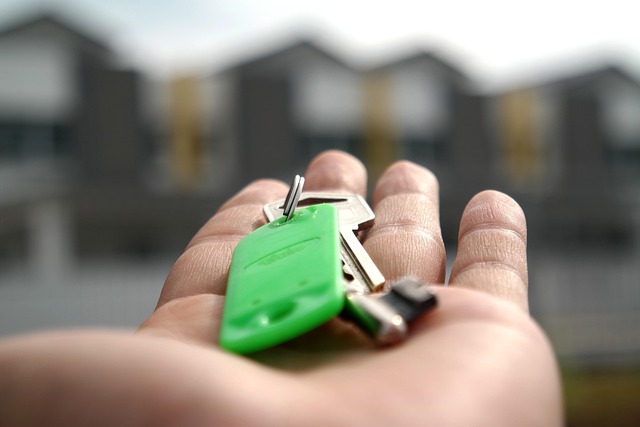What to Know About Apartment Rentals: A Basic Guide
Renting an apartment involves several important factors that can influence your experience. From understanding lease terms to evaluating location and amenities, there are ways to approach the process more confidently. Learn what many consider before renting and discover more in this article.

What should I consider when choosing an apartment?
When selecting an apartment, it’s crucial to consider various factors that will impact your daily life. Start by evaluating the location and its proximity to your workplace, schools, or other frequently visited places. Consider the neighborhood’s safety, amenities, and access to public transportation. Inside the apartment, assess the layout, natural light, storage space, and overall condition of the unit. Don’t forget to factor in your budget, including rent, utilities, and any additional fees. Taking the time to carefully consider these aspects will help you find an apartment that suits your lifestyle and needs.
How do I start the rental process?
To begin the rental process, start by researching available apartments in your desired area. Utilize online listing platforms, real estate websites, and local rental agencies to find potential options. Once you’ve identified apartments that interest you, schedule viewings to see them in person. During these visits, take notes and photos to help you remember each property. Prepare necessary documents such as proof of income, references, and identification, as landlords often require these for the application process. Being organized and prepared will streamline your apartment search and increase your chances of securing the right rental.
What are the key components of a lease agreement?
Understanding the lease agreement is crucial before signing any rental contract. A typical lease agreement includes several key components:
-
Lease term: The duration of your tenancy
-
Rent amount and due date: How much you’ll pay and when
-
Security deposit: The amount required and conditions for its return
-
Utilities: Which are included in the rent and which you’re responsible for
-
Maintenance responsibilities: What the landlord covers and what you’re expected to handle
-
Pet policies: Whether pets are allowed and any associated fees
-
Subletting rules: If and how you can sublet the apartment
-
Termination conditions: How to end the lease and any penalties for early termination
Carefully review these elements and don’t hesitate to ask questions or seek clarification from the landlord or property manager before signing.
What questions should I ask before renting an apartment?
Before committing to an apartment rental, it’s essential to ask the right questions to ensure you have all the necessary information. Consider asking:
-
Are there any planned renovations or major maintenance projects?
-
What’s the policy on making alterations to the apartment?
-
How are maintenance requests handled, and what’s the typical response time?
-
Are there any noise restrictions or quiet hours?
-
What’s the parking situation, and are there any associated costs?
-
How is rent collected, and what payment methods are accepted?
-
Are there any additional fees not mentioned in the lease?
-
What’s the process for lease renewal?
Asking these questions will help you better understand what to expect as a tenant and avoid potential surprises down the road.
What are some tips for a smooth move-in process?
Moving into a new apartment can be exciting but also stressful. Here are some tips to ensure a smooth transition:
-
Schedule your move-in date and time with the landlord or property manager
-
Conduct a thorough walk-through of the apartment before moving in, documenting any existing damage
-
Set up utilities and internet service before your move-in date
-
Measure doorways and spaces to ensure your furniture will fit
-
Obtain renter’s insurance to protect your belongings
-
Familiarize yourself with building rules and regulations
-
Meet your neighbors and introduce yourself
-
Locate important features like the fuse box, water shut-off valve, and thermostat
By following these tips, you can make your move-in process more organized and less stressful.
What are typical rental costs and how do they vary?
Rental costs can vary significantly depending on location, apartment size, and amenities. Here’s a general overview of average monthly rental prices for different apartment types in various U.S. regions:
| Apartment Type | Northeast | Midwest | South | West |
|---|---|---|---|---|
| Studio | $1,200 | $800 | $900 | $1,300 |
| 1 Bedroom | $1,500 | $950 | $1,100 | $1,600 |
| 2 Bedroom | $1,800 | $1,200 | $1,300 | $1,900 |
| 3 Bedroom | $2,200 | $1,500 | $1,600 | $2,300 |
Prices, rates, or cost estimates mentioned in this article are based on the latest available information but may change over time. Independent research is advised before making financial decisions.
When budgeting for an apartment, remember to factor in additional costs such as utilities, parking fees, and amenity charges. Some landlords may also require first and last month’s rent upfront, along with a security deposit. It’s important to carefully review the lease agreement and ask about all potential costs to avoid unexpected expenses.
In conclusion, renting an apartment involves various considerations, from choosing the right location to understanding lease terms and managing costs. By following this guide and being well-prepared, you can navigate the rental process more confidently and find an apartment that meets your needs and budget. Remember to take your time, ask questions, and thoroughly review all agreements before signing a lease.




